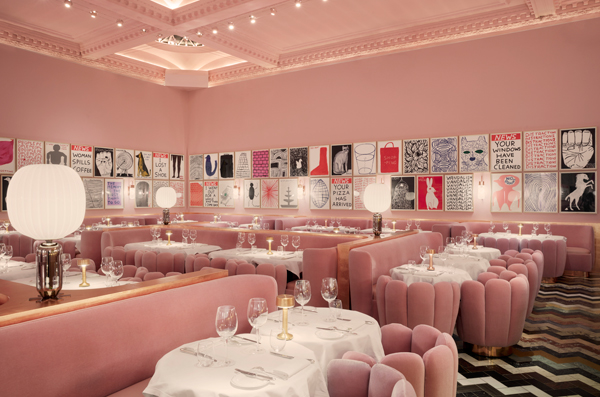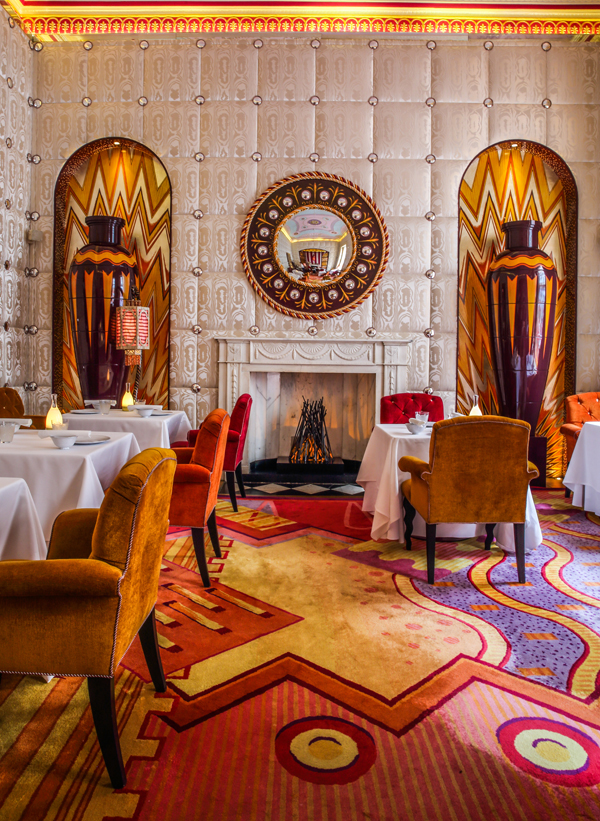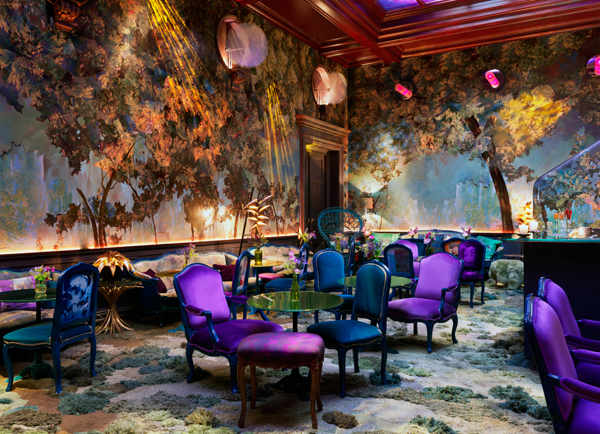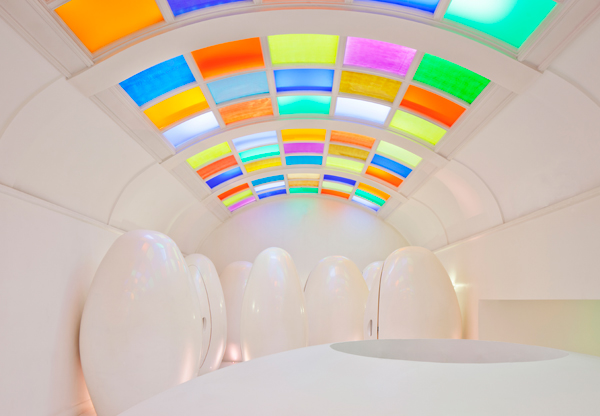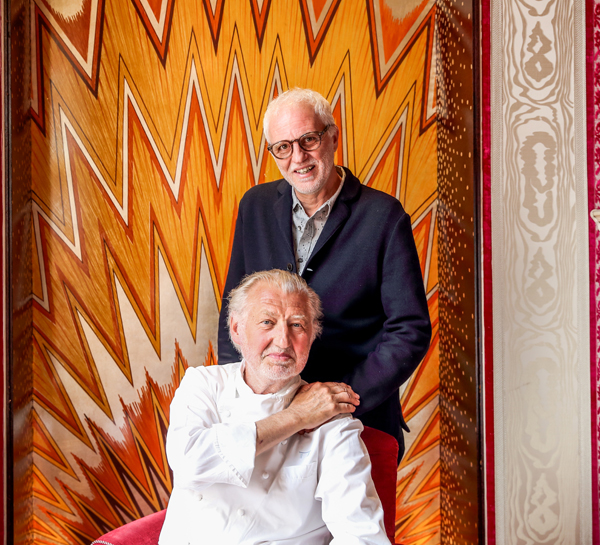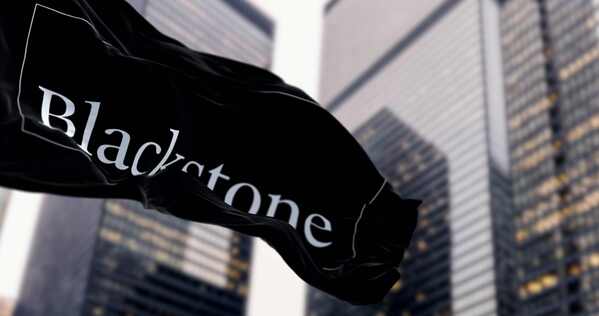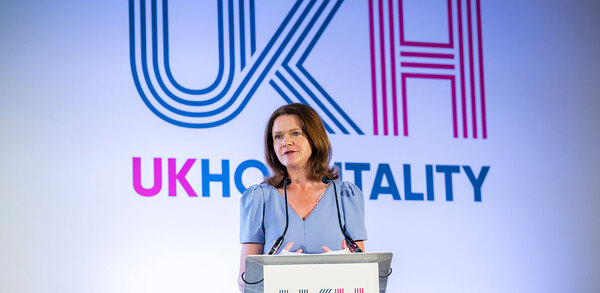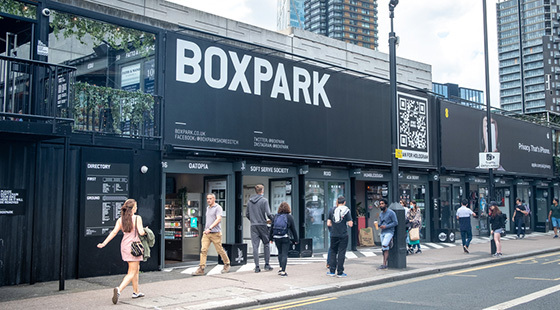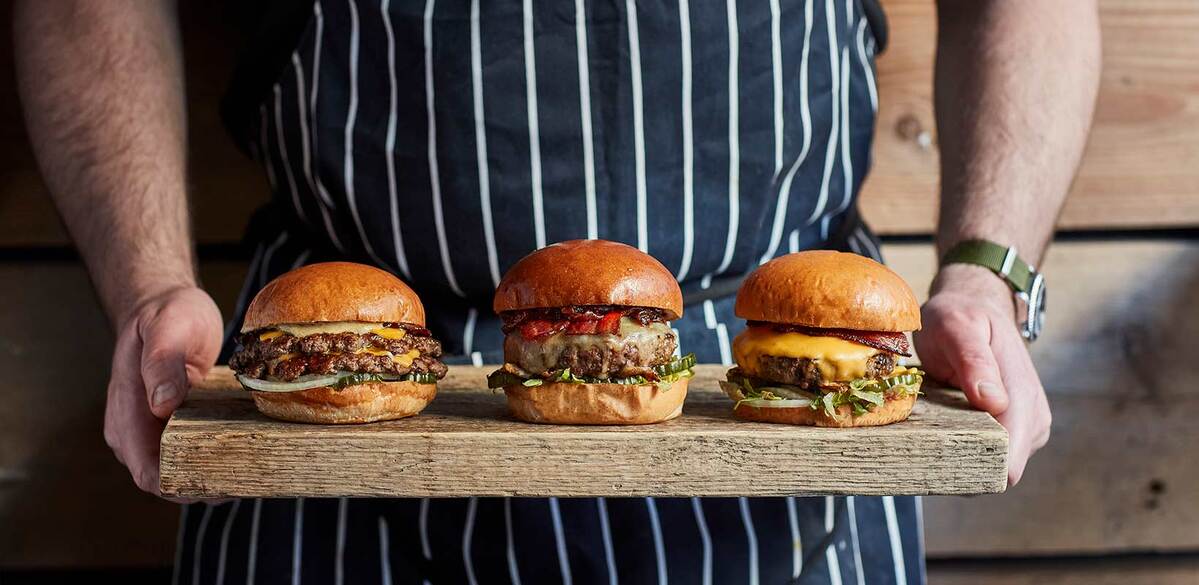Sketch: the big picture
When Sketch opened in 2003, it was almost universally panned. Fifteen years on, it boasts two Michelin stars and is counted among London's restaurant royalty. Owner Mourad Mazouz and chef Pierre Gagnaire reflect on their rollercoaster ride with Tom Vaughan
âA friend of mine wanted to open a nightclub in London, so I looked for a site for him,â explains Mazouz, his Algerian-French zeal as lively as the vivid pink and cream wallpaper behind him. âIn a week, somebody showed me this place. So my friend told me, âAh great, I will do itâ. But then â" nothing. Silence!â
Gagnaire guffaws and gives a disbelieving bounce of the eyebrows. âHe had been in love with a woman in London. And now, he was not in love anymore and didnât want to come to England! So I had the paperwork for this building in front of me, and everybody wanted it â" Marco Pierre White, Saatchi â" so I signed it. I had no clue what I was going to do with it.â
From such uncertain, impulsive moments, Sketch was born. Now, 15 years on from the launch (and nearly 20 from signing for the site) Mazouz and Gagnaire can laugh about the journey theyâve been on together â" from public whipping boy to industry royalty.
Mazouzâs impulsive site grab might have given him fertile ground for a new restaurant, but it wasnât until he cold-called Gagnaire that the seeds of Sketch were sown. âI had eaten at Pierreâs restaurant in Paris and I was blown away. I had never eaten like this, never had these textures. I went to see him to ask him if he had a chef. I was quite naïve, you know? But after three meetings, he said âWhy not me?ââ
So far, so good: a prime central London site, one of the worldâs most revered chefs. What could go wrong? âEverything!â answers Mazouz. âThe building was in a very bad state, it was leaking, holes everywhere. When we started digging, the foundations moved. It was a nightmare. It took us four and a half years â" we went four times over budget. It ended up costing £12m. I had Pierre waiting for two years. I was sinking. It was like my head and body were under the water in the middle of the ocean. I was going home crying, saying I am never going to achieve it.â
Yet worse was to come. When the restaurant finally opened, the critics gave it a pounding of Mike Tyson-esque proportions. âA lot of bollocks,â sneered The Guardianâs Matthew Fort of the design-led interiors, giving it a plump zero out of 20. âDogâs breakfast, baby sick,â claimed The Independent. âThe most expensive restaurant in Great Britain,â howled The Guardian.
Artisan interiors Looking around at the over-the-top restaurant, itâs hard to remember a time when it wasnât anything other than a two-Michelin-star darling (an honour it achieved in 2012) or the self-proclaimed âmost-Instagrammed restaurant in the worldâ (an accolade that is harder to substantiate). Now, diners canât get enough of the roomsâ kaleidoscopic interiors and art installations â" the blancmange-pink Gallery with David Shrigley prints; the towering Lecture Room complete with Moroccan lanterns, gold-lead stucco and winged wedding dress (in honour of Harry and Meghan); and, of course, the futuristic egg-shaped toilets that are just a glam-rock chorus away from Rocky Horror.
But it wasnât always so. âWhen we opened, everybody thought, âpretentious, grand, ridiculousâ. And I was so shocked,â says Mazouz. âIt was minimal music, the food of Pierre on trollies in the Gallery, dishes on the table in the Lecture Room. It was to please people. Looking back, I was totally wrong. You push people away with that. You push people to criticise, because nobody understands it.â
The pair didnât just have the critics at their throats in those early days â" but the bank manager as well. âWe lost £2m in the first two years,â explains Mazouz. Did either of them ever consider throwing in the towel? âNever! Not until the last drop of my blood,â he retorts. âItâs about looking myself in the mirror and saying I did the best I can. The only answer was work. All you have is work. Thatâs the only thing I know to do.â
Six months in and with Mazouz, by his own admission, âsinkingâ, he made another inspired appointment â" chief executive Sinead Mallozzi. âWithout her we wouldnât be open,â says Mazouz. âShe brought a structure â" a military structure,â agrees Gagnaire. Her business nous, Mazouzâs passionate work ethic and Gagnaireâs experience of his own misunderstood years turned good helped them battle the storm. Two years in, a glowing review from the late AA Gill was the first harbinger of things to come. âI think I cried out of happiness,â says Mazouz. âIt proved we were not wrong.â But it wasnât until six years after opening when Matthew Fort came to the restaurant that Mazouz felt truly vindicated. âI donât know the guy, I was not accepting an apology, but he told me â" âI was wrongâ.â
The pair wear their different roles with utter comfort: Mazouz the impassioned restaurateur with the energy of a Grand Bazaar, and Gagnaire the meditative master who listens, nods, interjects rarely â" even excusing himself a couple of times to return to the pass (âWhen I saw the starter come out, it was not how I had conceived it,â he explains). When so many business partners have split up over the past decade, it is remarkable that Mazouz and Gagnaire, whoâd never worked together or even socialised prior to Sketch, have gone from strength to strength. Whatâs their secret?
âMourad connects with people. He has a talent to read guests,â says Gagnaire. Mazouz replies in kind: âPierre is unique. I see him work, head down, for an hour, then he has a full menu and an à la carte. All from his head. It can take some chefs three months. He is a magician. You can feel the fire inside him.â
However, when Gagnaire harks back to their early days at Sketch, the essence of the dynamic emerges through the saccharine haze: trust. âYou know, there were many things I saw at Sketch that I was not OK with,â he tells Mazouz. âBut there was no reason for me to block you because I saw your energy, your creativity. When you have a team, it is built on honesty and integrity. Weâre not here to break down people, but to push them, let them grow and think for themselves. In 19 years weâve never had a cross word.â
Nineteen years in, and Mazouz might not have argued with Gagnaire â" but he has also yet to take a penny from Sketch. However, he insists heâs not going to compromise the restaurantâs ethos. âIâm not someone who sells to groups or makes chains. Iâve had millions of proposals but I donât want to. I want to stay small enough to be a restaurateur. Thatâs what I am. Iâm a worker, an artisan restaurateur and I am proud of it. Maybe one day some money will arrive, maybe it wonât. For me, weâre born, we pass by, we die. Make something. Move on.â
Heâd much rather spend profit ensuring Sketch keeps moving forward, he says. âA big boat like this, you need to maintain your pace. So instead of staying the same, spend some money. Change.â This year, the Lecture Room is undergoing a major facelift, while the revolving design installations â" including a lavish floral entrance in honour of the Mayfair Flower Show â" are as impressive as ever. Are the interiors a reflection of Mazouz the person? âNever!â he retorts. âI would never do my home like this. My dream is one bed and two seats either side as bedside tables. I have a summer house with just a hammock. Thatâs my dream. But we want people to say âthank you, Iâve had such a good night â" youâve made me travel.â Thatâs the best compliment we can get.â
Fifteen years on, the pair are no longer short of compliments. âToday, I have many restaurants around the world,â concludes Gagnaire. âBut wherever I go, it is always Sketch that people want to talk about.â
Mourad Mazouz on⦠…the difference between a chef and a restaurateur
âA chef is more focused on the plate, because food is first. For me, food is important. But for me, a restaurant is a flower. The food is the centre, but the fun, the welcome, the service, lighting decor are petals. If you take more than three petals, it is not a flower. For me, that is a restaurant. A chef is focused on the middle. A restaurateur looks at it all.â
…life as a 21st-century restaurateur
âI used to spend time in my restaurants. Now I spend time in my office doing paperwork and dealing with TripAdvisor â" people who take out their misery on their keyboards. One woman came to Momo for years, but one day she comes in and our chef is away and the food is not at its usual high standards. She goes onto TripAdvisor and she is so bitter. Fifteen years and one day it is not 100% and she is bitchy. It makes me so sad. This didnât happen 10 or 20 years ago.â
…the difference between Paris and London
âI compare it to music. In Britain you are so proud of your rock and pop â" you are kings of it. In France, the music has never been as big a thing. So we opened our blinkers â" in Paris every night you can go to little gigs with music from all over the world. Now I find it so much more interesting than music here. I will say the same for food in France. They think they are the best but have closed their blinkers. But Britain has opened its doors. When you lack something you are more open. When you think you are the best you are closed off.â
…being an independent restaurateur in Mayfair
âMomo is the last independent on its street. There are managers everywhere, I canât go in and talk to an owner. People go to the suburbs like Dalston now because they want something more real. If you are in central London like me you struggle. Itâs hard. Iâm an old-fashioned artisan and I donât want to fail. And Iâm fighting not to fail.â



